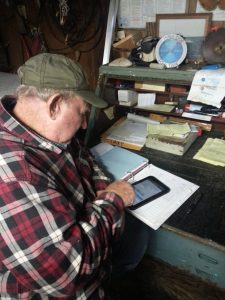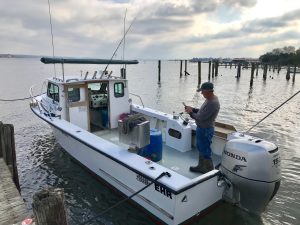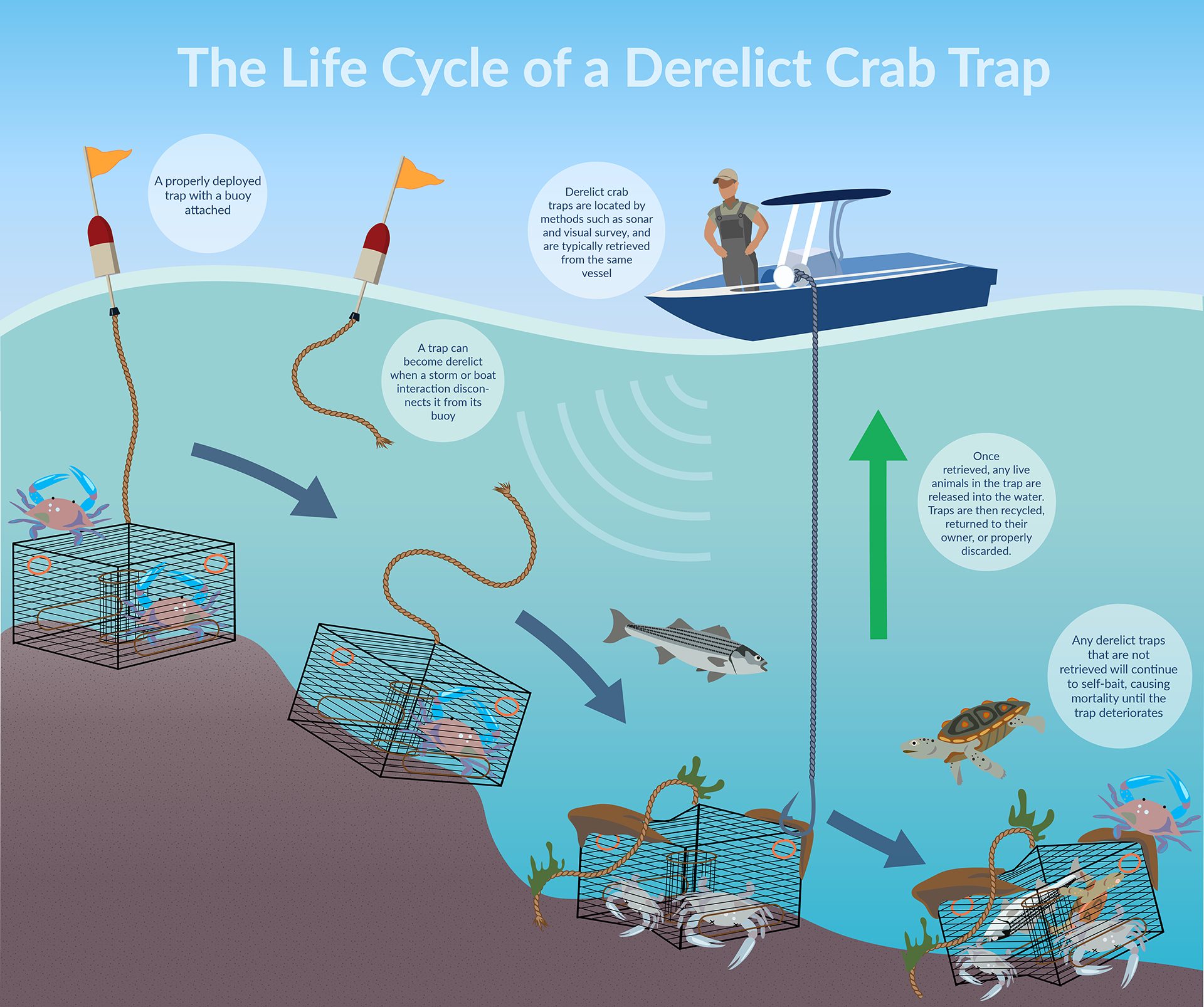ORP supports the sustainable harvest of Chesapeake Bay fish and shellfish, which enhances a thriving seafood industry, strengthens the regional economy, and preserves the rich culture of communities surrounding our waters. ORP works to improve management of Maryland's fisheries while supporting watermen and the growing aquaculture industry. We strive to create a win-win-win situation for all involved in the Chesapeake Bay seafood process.
Oyster Aquaculture
Electronic Harvest Reporting

Timely access to accurate commercial fishing harvest information is critical to effective fisheries management and to support sustainable fishing practices. Historically, accessing this information has limited the ability of managers to update fishery regulations and address fishery needs.
Since 2012, ORP has worked with Maryland Department of Natural Resources and Electric Edge Systems Group to develop and maintain an electronic harvest reporting platform - the Fishing Activity and Catching Tracking System (FACTSTM). E-reporting with FACTSTM allows watermen to submit harvest reports directly to Maryland Department of Natural Resources on the day of harvest.

Reporting harvest in FACTSTM has many benefits for watermen as well. Participants only have to use the system on days they fish and can take advantage of several business tools and harvest flexibilities.
Currently, more than 1,200 commerical license holders are participating in the voluntary program and the system accepts over 25,000 trips annually.
Since its inception, FACTSTM has:
FACTSTM Timeline
Derelict Fishing Gear Removal
The Chesapeake Bay supports the largest commercial blue crab fishery in the U.S., in addition to recreational and commercial shipping activities. Derelict crab traps, or “ghost pots,” accumulate in areas where these activities overlap. This derelict gear becomes marine debris, competes with active fishing gear, and increases blue crab and bycatch mortality through ghost fishing.
Removing derelict gear protects and improves the environment while directly supporting watermen and small businesses that depend on the Bay for their livelihood. Since 2012, ORP has partnered with watermen to retrieve derelict crab pots and other debris throughout the Chesapeake Bay. Sidescan sonar is used to map areas where derelict pots are likely to accumulate, and traps are identified in the resulting images. These maps guide our retrieval efforts.


Oyster aquaculture is one of Maryland’s fastest growing businesses and ORP supports it in a variety of ways. We help would-be farmers obtain leases, share technologies and expertise, and even train them in best practices.
Today, there are hundreds of oyster leases in Maryland waters, from small farms to large operations. Maryland-raised oysters are shipped all over the country to restaurants, consumers, and wholesalers. Learn more.